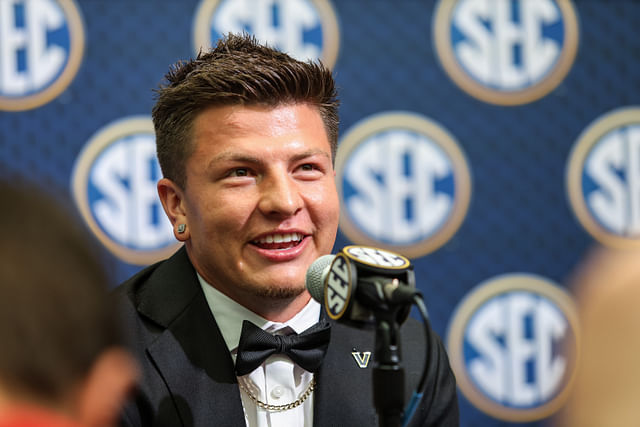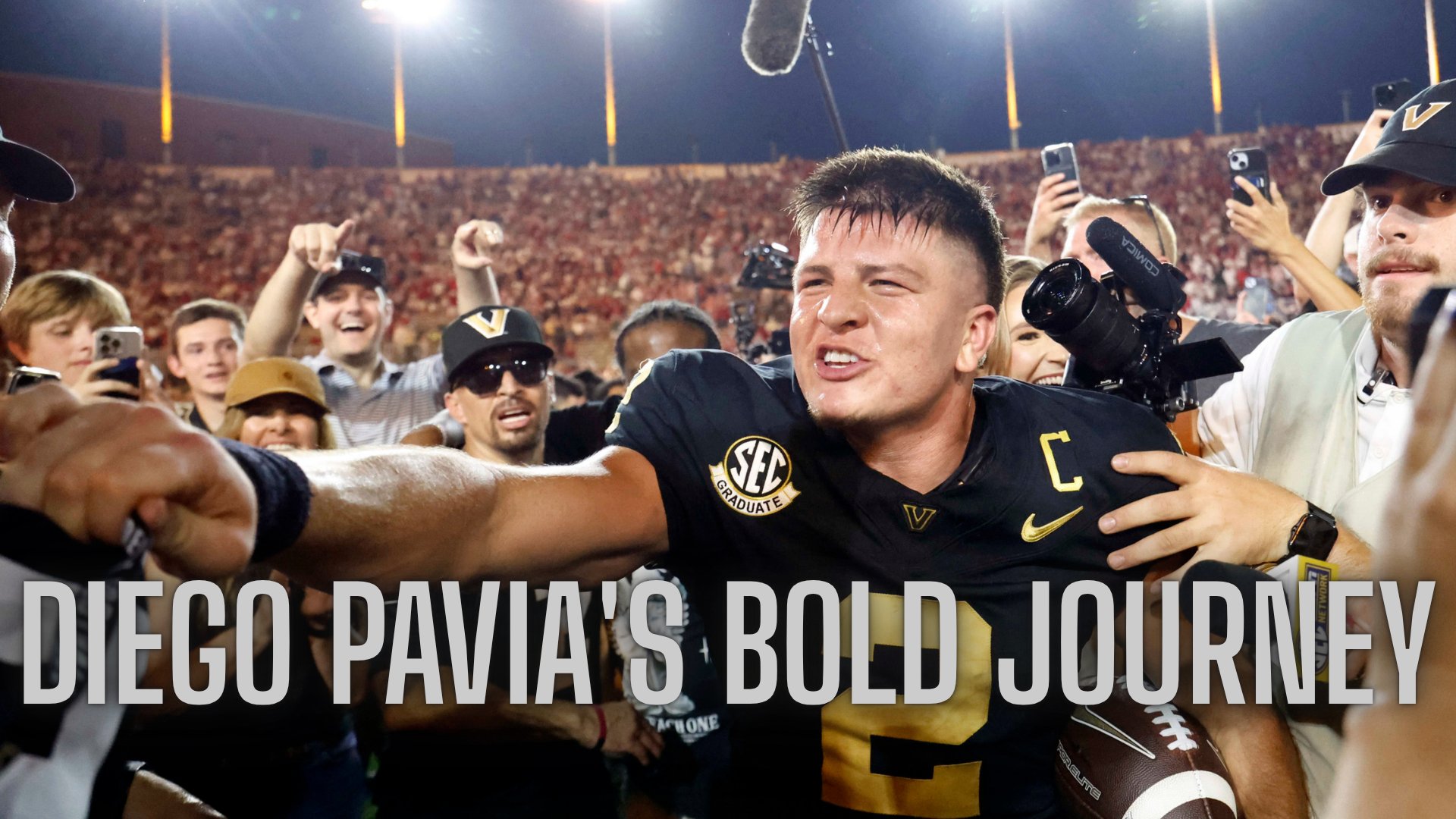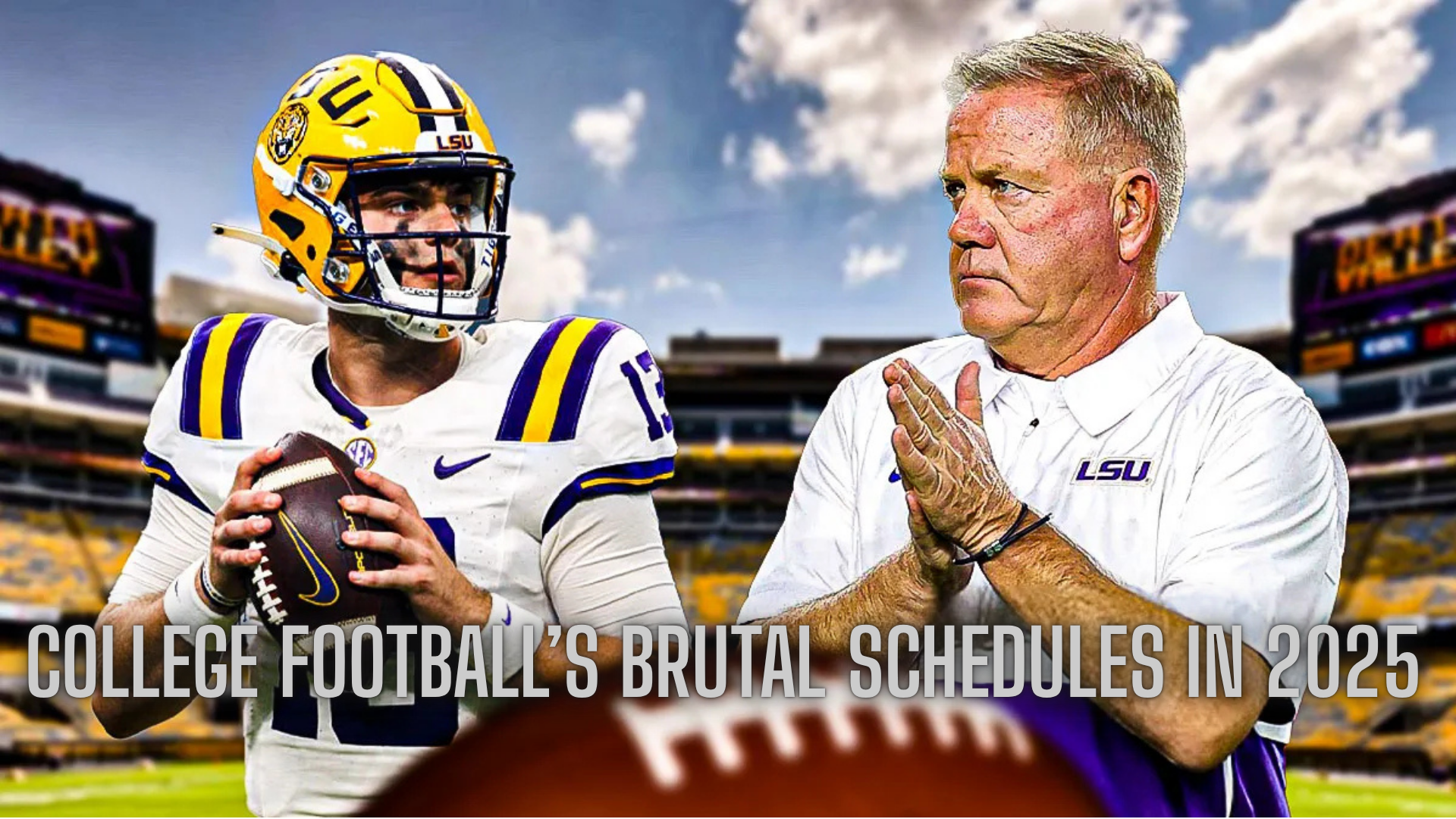Diego Pavia loves his odds.
Whether he’s playing blackjack, baccarat, or poker, the Vanderbilt quarterback embraces risk—and lately, the stakes have never been higher. Dressed to kill in a sharp tuxedo, glimmering gold chain, and diamond studs, Pavia cut a high-roller figure Monday at SEC Media Days in Atlanta. But behind the flash lies one of college football’s most unlikely success stories—equal parts courtroom drama, athletic prowess, and unapologetic swagger.
Once an overlooked junior college quarterback, Pavia has climbed the ranks to become Vanderbilt’s headline act and a genuine SEC standout. His journey, emblematic of the modern “rags to riches” path in the NIL era, recently took a dramatic legal turn that could change the college football landscape forever.
Betting on Himself—and Winning
Last year, Pavia went all-in on a high-stakes lawsuit challenging NCAA eligibility rules. The bet paid off: A Tennessee judge ruled in his favor, agreeing that his junior college season should not count against his NCAA eligibility. The decision effectively granted him a bonus year to play—and turned him into a symbol of change.
Without that ruling, Pavia wouldn’t be here—strolling through an opulent downtown hotel, fielding questions from reporters across TV, radio, and print.
“I still do the nut-job stuff,” Pavia laughed, referencing his unpredictable personality. “But now the cameras are on me, so I’ve got to be more careful.”
Before sitting down with Yahoo Sports, he even listened to his earlier interviews to ensure he hadn’t said anything regrettable. “Just making sure I didn’t say anything too dumb,” he smiled.
He didn’t. But his lawsuit did plenty of talking.
The case set off shockwaves throughout the NCAA. The ruling led to the organization granting an extra year of eligibility to athletes in similar situations—those whose time had run out but had played at the junior college level. More than two dozen follow-up lawsuits have since been filed.
“They might end up calling it the Diego Pavia Rule one day,” he said.
In fact, just hours before Pavia’s media rounds on Monday, another such lawsuit was filed—this time by Sam Hicks, a running back from Abilene Christian being courted by Western Kentucky. The eligibility battle is now being waged on multiple fronts.
An Industry Under Fire
The timing of Pavia’s media spotlight couldn’t have been more symbolic. As he navigated the SEC media gauntlet, Commissioner Greg Sankey stood at a nearby podium decrying what he called an “assault” on eligibility standards, arguing that it threatened high school recruiting and the fabric of college athletics.
“We need to preserve some of the core values of our academic institutions,” Sankey insisted.
Minutes later, the man at the center of the eligibility storm—Pavia—walked past that very podium, basking in the spotlight.
Weird? Yes. Ironic? Definitely. But fitting for an era defined by uncertainty.

Coaches Caught in the Crossfire
Even among coaches, opinions diverge. Vanderbilt head coach Clark Lea supports Pavia’s legal move, emphasizing the need to balance regulation with compassion.
“We need to understand both sides,” Lea said. “I don’t think solving these problems in court is ideal, but we need a framework to move forward.”
What should that framework be? Some say collective bargaining is the future. Others, like Utah coach Kyle Whittingham, foresee an outright break from the academic model.
“I think you’ll see a time where players won’t even need to go to school,” Whittingham predicted. “It’ll become a true minor league.”
West Virginia’s Rich Rodriguez put it more bluntly: “How do you make half a million dollars and not be considered an employee?”
While conference commissioners lobby Congress to maintain NCAA authority, coaches and administrators are warming up to a professionalized model, one that could separate college sports from academia entirely.
A Five-Year Fix?
Pavia has his own ideas for reform.
He advocates for a five-season playing window across five academic years—breaking from the current four-season model. He also believes junior college seasons should count like prep school, not against NCAA eligibility, a key argument in his lawsuit.
“I know they’re exploring the five-year model,” he said. “Most athletes don’t get their degree in four years. Many would benefit from more time.”
And there’s a financial side too. In lawsuits like his, players often cite NIL offers as evidence of damages suffered if eligibility is denied. Hicks’ new lawsuit, for example, includes a $100,000 offer to play at Western Kentucky.
The eligibility battle has even reached Capitol Hill, where the NCAA and conferences continue lobbying for a federal bill that protects their authority. So far, courts have largely sided with the NCAA, which claims it’s won 20 out of 23 recent eligibility injunctions. The other three are under appeal.
NCAA President Charlie Baker is confident: “We believe we will win those too.”
The Gambler’s Last Hand?
Back at the Grand Hyatt in Atlanta, Pavia moves confidently through his interviews. His sleek black tux? A last-minute purchase, after realizing Sunday that he had “nothing to wear.” The inner lining of his jacket sports the Vanderbilt logo—an audacious flourish for a player who’s made his mark by rewriting the rules.
He’s not here to talk fashion or lawsuits, though.
He’s here to talk football—and to deliver a message: Vanderbilt is for real.
What’s the endgame?
“National championship,” he said, without blinking.
Can he deliver? Can this bonus year become the year he rewrites history—not just his own, but Vanderbilt’s?
It’s possible. After all, the gambler is still at the table.
“House money?” he grinned. “Nah, I feel like I’m in debt this year. I’ve got more to prove.
“I’m still down.”



